Five Ways Insecure Shows Us the Spectrum of Friendship
Not Every Friend Is a Best Friend—And That’s Okay
Welcome to The Media Room 📺—where I dive into the themes behind the movies, shows, and cultural moments that shape the world of art and entertainment.
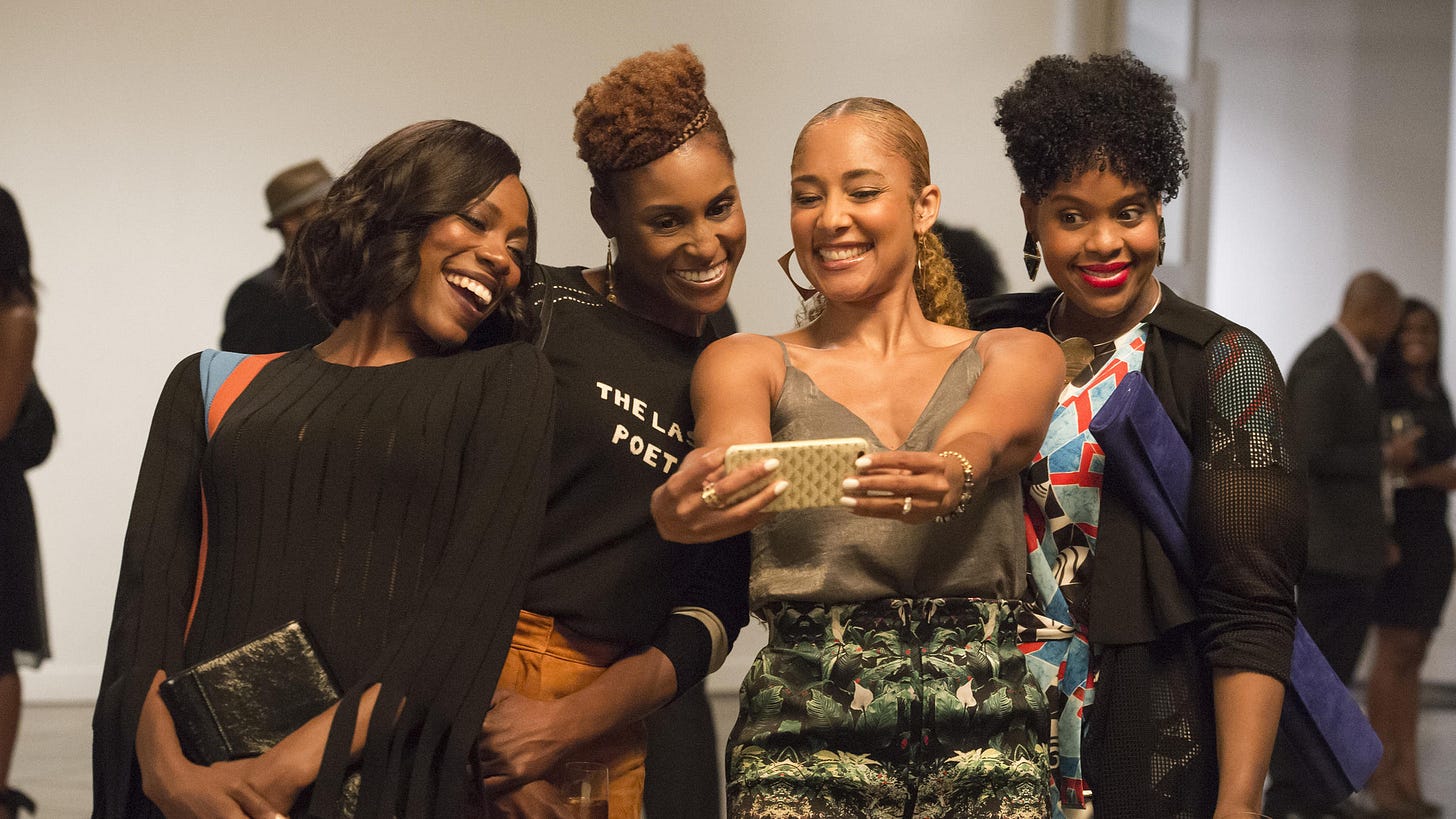
On the TV show Insecure, the main character, Issa Rae, is known for her close friendship with Molly. Whether Issa is going through a breakup, having a hard day, needing a favor, or simply wants someone to vent to, viewers know that Molly is her go-to person—and the same goes for Molly with Issa. They even have self-care Sundays together, which are filled with self-nourishing activities with a little bit of gossip and maybe a mimosa on the side.
Molly isn't Issa's only friend, however—she also shares a deep sisterhood with Kelli and Tiffany. While Tiffany and Kelli may not be Issa's go-to people when she's struggling or looking for deep conversations, they remain within her circle of support. Their friendship reminds us that relationships exist on a spectrum: not every friend needs to be as close as family to still maintain a valuable connection rooted in respect, reciprocity, and care.
When I think of Molly and Issa, I think of one of my best friends I've known since I was six. We met in first grade and grew up together. As adults, we started seeing each other as more than friends—we became sisters. She is a part of my chosen family, and I am a part of hers. She calls my mother "Mom," and I do the same with hers. During the holidays, we combine our families, and I am the godmother to her children. I was even in the delivery room when they were born. The bond I have with my best friend is unique and special. She was by my side when I was bullied throughout primary school, she mourned with me when my father died—who was also a father figure to her as well—and she has been an integral part of my support system.
In my adult life, I've met many people with whom I share intricate relationships, but for most of them, I haven't developed the same deep bond that I have with my best friend. Growing and maturing helped me realize that this is perfectly fine—because not every friendship needs to be a "best friend" situation to be meaningful. I don't seek—or need—to replicate the unique closeness I share with my best friend in every new friendship I form.
In Insecure, Issa has meaningful experiences with Kelli and Tiffany that extend beyond her relationship with Molly. The four of them go on trips together, celebrate birthdays, go on group social dates, and support one another during triumphs and devastating losses—like when Molly's mother dies and when she gets married.
Their friendship and deep sisterhood empower us to recognize that friendship exists on a spectrum. This understanding can support our social and mental health, and here are five takeaways we can learn about the spectrum of friendship from the TV show Insecure.
1. People Can Come Into Our Life to Serve Different Roles
Insecure showcases the different types of friendships Issa has:
Kelli is the friend you call when you want to turn up and have a good time. She brings humor and energy to the group, always lightening the mood.
Tiffany is the friend you call when you want to do something low-key and bougie. She's down for a good time, too, but it will have a dash of sophistication.
Molly is the friend who is down for anything—even riding around with you while you pick up passengers as a Lyft driver to make it more fun. She's deeply woven into Issa's day-to-day life.
These friendships remind us that not every friend is meant to be our go-to for everything, and that's okay. Each of these friendships adds value in its own way, and different people fulfill different emotional and social needs. Rather than expecting one person to be everything, we thrive when we embrace a variety of connections.
Is there someone in your life who plays a meaningful role but doesn't fit the "best friend" label? How can you appreciate them more?
2. Some Friendships Are Rooted in Shared Experiences
Some friendships thrive because of the stage of life you're in together. Insecure shows this through Issa and her core group, who initially bond over shared experiences as Black women navigating career, love, and personal growth in their late 20s and early 30s.
Many friendships are deeply tied to certain factors and third spaces, such as work environments, school, book clubs, support groups, or mutual struggles. This explains why some friendships fade when those shared experiences change. Instead of seeing this as a failure, we can recognize it as part of the natural ebb and flow of relationships.
3. You Don't Have to Be Everything to Every Friend
A common friendship struggle is feeling pressure to be all things to all people. Issa and Molly's relationship suffered when their expectations weren't aligned—they expected too much from each other without recognizing their individual emotional limitations or communicating effectively about their needs and frustrations.
When we expect too much from one friend, we can experience friendship burnout, leading to feelings of anger, frustration, and resentment. The healthiest friendships acknowledge boundaries and allow people to show up authentically rather than forcing unrealistic expectations. When we expand our circle of support, however, we have multiple people in our lives we can lean on and feel supported by.
4. Friendship Roles Shift Over Time
Friendships are not static—they evolve as people grow and their circumstances change. Issa and Molly had seasons of intense closeness, painful conflict, and, ultimately, reconciliation. Meanwhile, Tiffany's role in the group shifted when she got pregnant and also when she moved away, but she remained part of the circle in a different capacity.
Life transitions—such as moving, career changes, becoming a parent, losing a parent, or experiencing personal growth—create natural turning points in friendships. Rather than resisting these shifts, Insecure shows us how to embrace them as part of life's journey.
5. It's Okay If Every Friendship Doesn't Go the Distance
Not every friendship is meant to be lifelong, and that doesn't diminish its significance. While Issa, Molly, Kelli, and Tiffany maintained their friendship, the show also depicted how some relationships fade naturally over time or even experience conflict.
Studies on adult friendships highlight that while childhood and teenage friendships are often based on proximity, adult friendships are more fluid and tend to be based on shared values and life stages. Instead of feeling guilty when friendships naturally drift apart, we can appreciate them for what they were at that time in our lives.
Are there friendships you've outgrown that you feel guilty about? What would it look like to release that guilt?
The Takeaway: Friendship Is More Fulfilling When We Honor The Different Roles People Play in Our Lives
Rather than trying to fit all friendships into the same mold, Insecure reminds us to honor the unique roles people play in our lives. Some friends are our confidants, some bring fun and adventure, and others provide grounding and stability. And as we grow, those roles may shift—and that's okay.
What themes from this piece resonated with you? Leave a comment and stay tuned for Friday’s email: Reflect & Release!



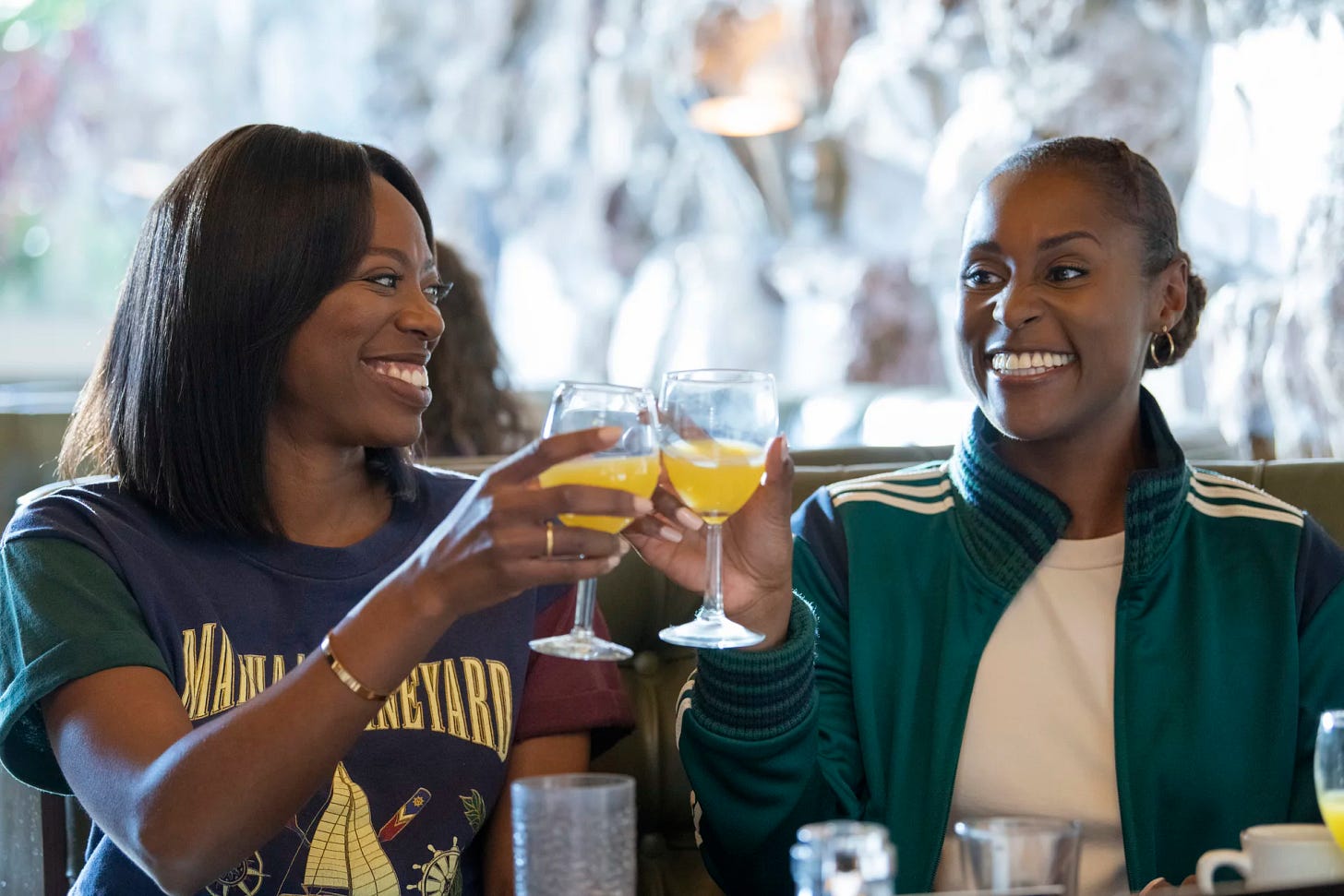
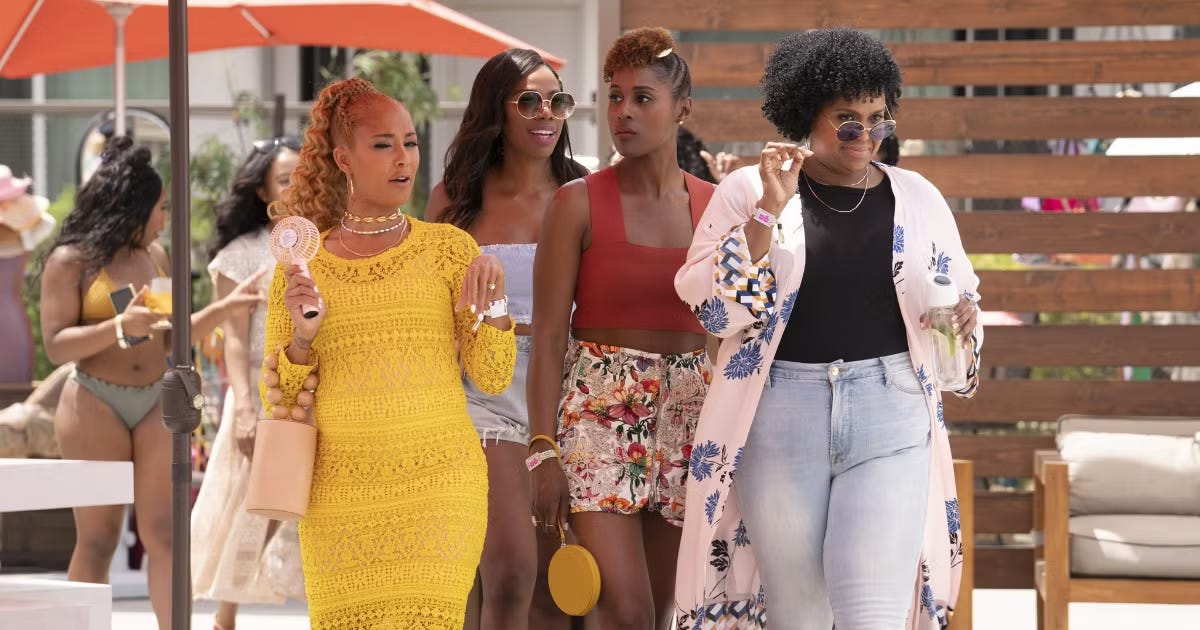
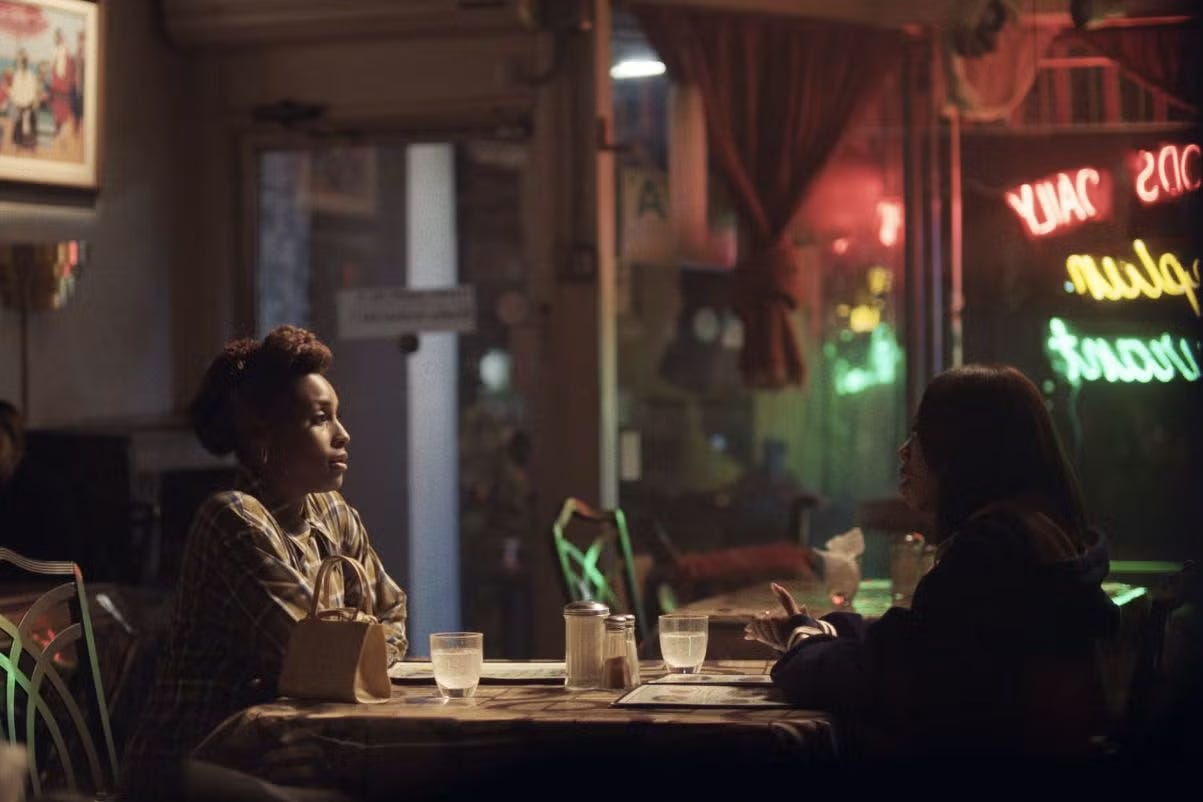
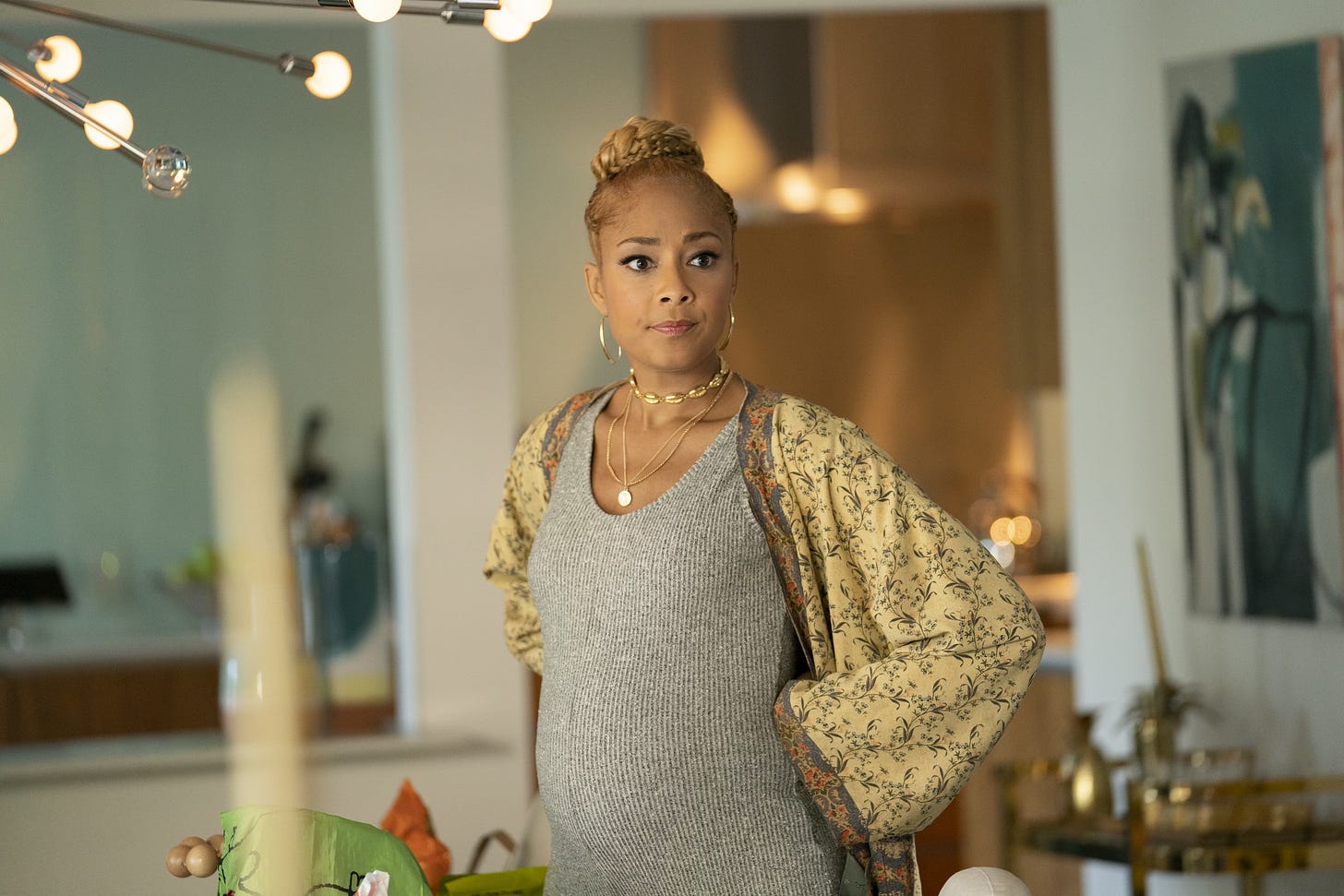
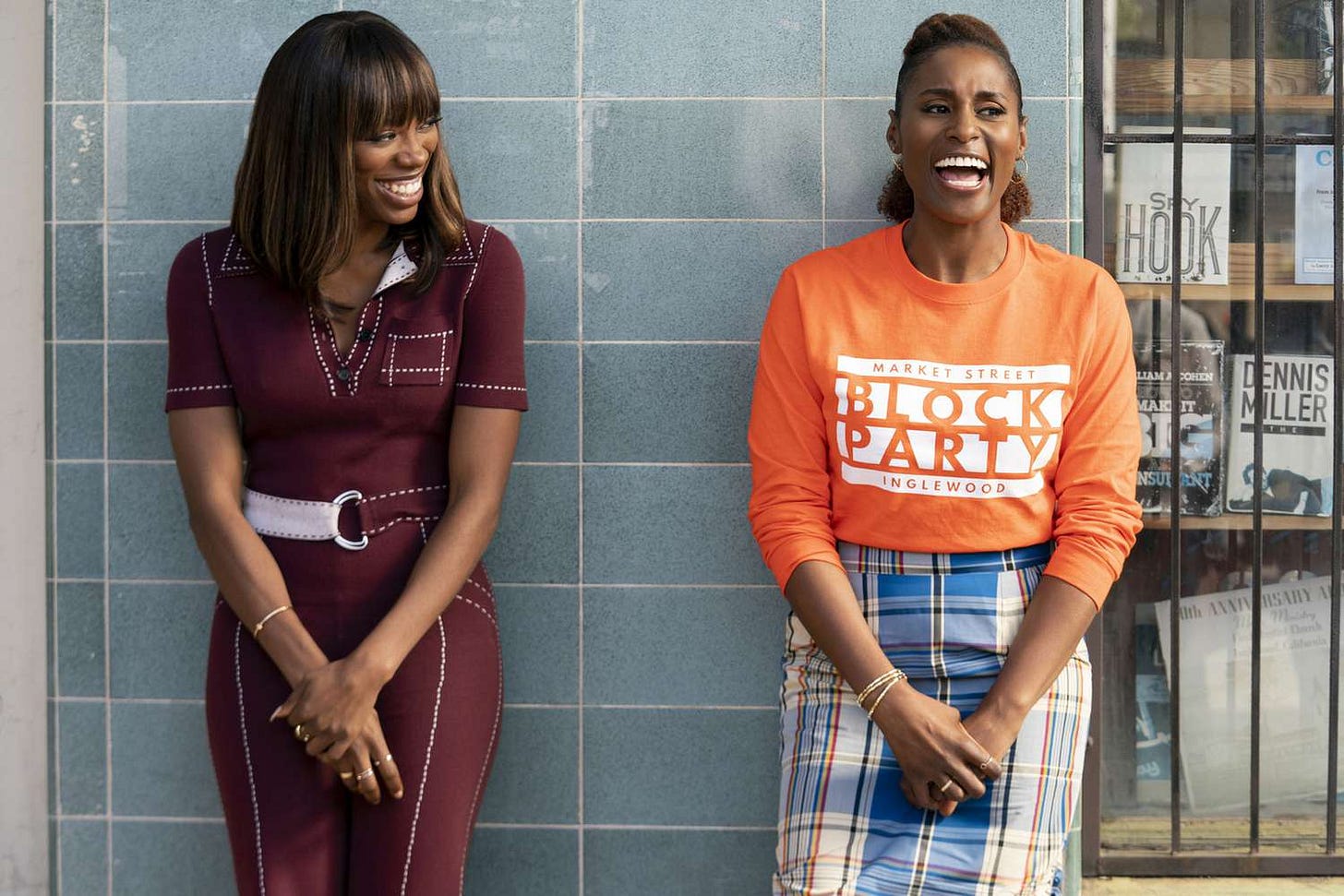
Loved this show!!! And excellent takeaways. Navigating adult friendships, much like any area of adulting, is challenging! So let’s talk about it 🗣️
Powerful read :) I’m at the stage where I’m not sharing certain aspects of my life with certain friends. my mindset has been shifting lately about friendship.